IMedis
Detecting When it Matters Most
137% of funding target

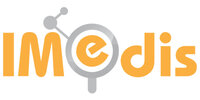
Highlights
Highlights
A revolutionary medical innovation that promotes early detection of cancer and other life-threatening diseases
Duali-Q, the first offering by IMedis, is a life-saving medical software system that quickly and efficiently analyzes medical data for surfacing actionable missed findings. Using Deep Learning technology, the system creates a unique combination of image and text analysis. This helps to detect previously unnoticed and therefore unreported early-stage cancer, heart disease, and vascular disease. A critical component of the medical profession's greatest challenge is the diagnosis of disease, which is vital for patient recovery. Duali-Q allows the health systems to successfully overcome this challenge.
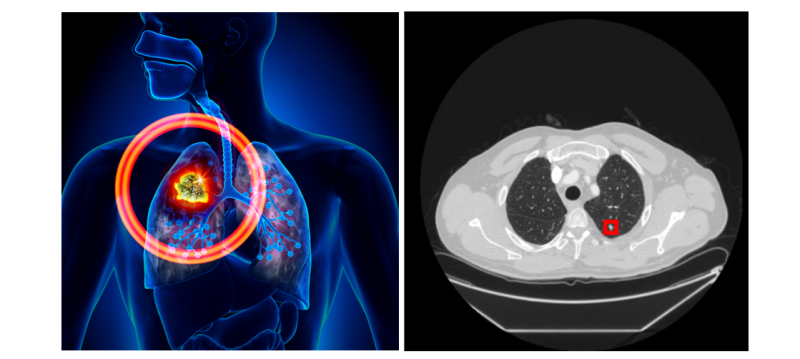
Patented and clinically proven technology
IMedis' technology makes use of the most advanced artificial intelligence (AI) and machine learning tools available today. The innovative software system combines image analysis and text analysis capabilities, and alerts when early signs of disease are detected in Medical imaging (CT scans), but are not mentioned in the medical report. We recently completed a large clinical trial in the United States, which found a 13% detection performance increase by radiologists working with the IMedis system and is now commencing commercial pilots in the US, UK, and Israel.
IMedis has multiple patents pending in the US, Europe, India, China, and Israel.
Duali-Q is now CE Marked, and FDA clearance is underway in H2-2021.

Investment by leading Digital Health VC Sanara Ventures, private investors, and the Israel Innovations Authority
At its inception, IMedis had already received significant investment funds from Sanara Ventures - one of Israel's leading early-stage, digital health-focused venture capital firms, which is an investment arm of Philips Healthcare, Teva, and the Israel Innovation Authority. By working with Sanara, IMedis has gained early exposure to digital health leaders in Israel and around the world, access to meaningful collaborations, and an ecosystem to quickly promote an idea to a product. IMedis raised additional funds from key private investors and family offices during one of the most successful crowd-funding campaigns at ExitValley. In 2019-2020, IMedis received three additional grants for joint development projects with Tel Aviv Sourasky Medical Center. In 2020, IMedis won the “Seal of Excellence” from the European Commission as part of the Horizon 2020 programme for research and innovation.

Strategic collaborations with leading hospitals in Israel, UK, and the US
In order to formulate the best product on the market, IMedis engages in important collaborations with leading medical centers. Right on its inception, IMedis partnered with UC San-Diego University Hospital, California, and subsequently completed a very successful first clinical trial. In 2019, the company has entered into a strategic collaboration with Tel Aviv Sourasky Medical Center for joint development. As of 2020, IMedis started to broaden its exposure to the UK market by gaining access to a growing list of potential customers within the NHS.
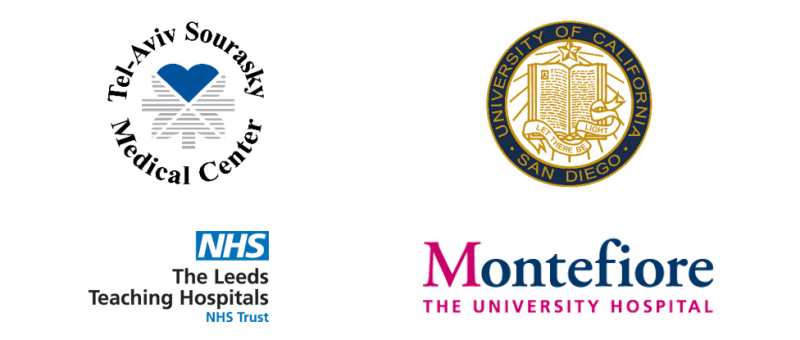
Attending AWS, Google, and Nvidia's Prestige Programs
IMedis is part of the prestigious startup programs of three software and hardware giants: AWS (Amazon) and Google - for use of their cloud services, and NVIDIA - the global leader in developing and manufacturing graphics processing chips used for deep learning and AI technologies. These collaborations included a significant financial grant that allowed the use of computing resources.

Imedis in Kan-11
Pitch
Pitch
Recent years have seen a real revolution in the world of medicine. The introduction of artificial intelligence (AI) technologies enables the integration and analysis of data from various sources, with the aim of optimizing diagnostic and preventive medicine.

The medical world is making huge strides in developing innovative and effective treatments for life-threatening diseases, but in many cases, the most influential factor in the chances of recovery is not necessarily the quality of the treatment, but the stage of diagnosis. As the amount of medical information accumulated in each medical examination increases, the major challenge now facing the medical system is strengthening and completing physicians' diagnostic capabilities through advanced technologies.
The revolutionary platform of IMedis uses advanced AI algorithms to accurately and quickly analyze medical imaging together with text from the medical report, and to ensure that important medical information does not go unnoticed.
Need
In medicine, despite the astonishing rate of deaths due to diagnostic errors, there are no standard, automatic safeguards unlike every other domain in our life. It is specifically relevant to radiology which suffers from a steady rate of errors in diagnosis for decades. Survival after a cancer diagnosis can be 40% higher after early as opposed to late diagnosis. An NIH study found that up to 85% of lung cancer patients are diagnosed at a very late stage, at which point the illness is rarely curable.
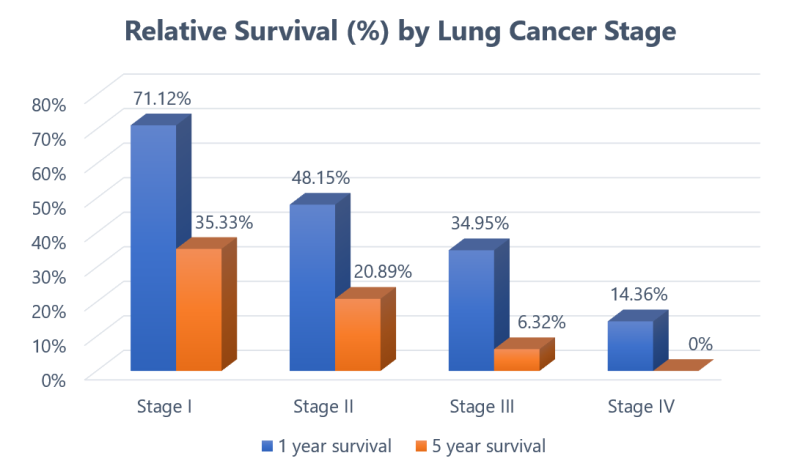
Advanced medical imaging tools, most notably CT scans, have become the primary diagnostic tools in recent years. These tests have tremendous potential for early disease diagnosis, but studies show that over 6% of CT scans have an important finding, which requires medical attention, but is missed by the radiologist. In the US alone, there are approximately 10,000 "missed" tests every day.

Since these medical conditions are usually without obvious symptoms in their early stages, most of these diagnoses are incidental and discovered when imaging tests are performed for other medical reasons. For example, a CT scan of the chest performed after a car accident may incidentally detect an existing liver lesion that requires further and important in-depth examination.

Solution
The founding team of IMedis have a deep familiarity with the existing work processes in imaging departments. They recognized the importance of radiologists being able to identify important findings that are often not the focus of the examination and, therefore, less likely to be diagnosed. At the same time, in order to leverage such a platform in the clinical setting, it must be quickly and easily implemented, must not create a high workload for the medical team and must significantly improve the output and quality of the radiologist’s reports.
To that end, IMedis has developed Duali-Q, an AI-based software system that automatically analyzes, in parallel to the radiologist's work, all CT examinations at the hospital, in order to identify suspicious findings that require medical attention. In addition, the system simultaneously analyzes diagnostic reports written by radiologists in real time. When the system detects an important finding that appears in a scan, but does not appear in the report, it alerts the radiologist in real time, allowing him/her to quickly and efficiently re-evaluate the images and include the additional findings in the medical report.
The philosophy behind Duali-Q is the understanding that the place of technology is not to replace physicians but to augment their capabilities, since in most cases, radiologists perform accurate and quick diagnosis. To that end, IMedis offers a parallel diagnostic tool to the one currently available. In this way, the system decides to intervene in real time, alerting only if a key finding is missed, and thus offering radiologists a tool that enhances their capabilities and quality of output.
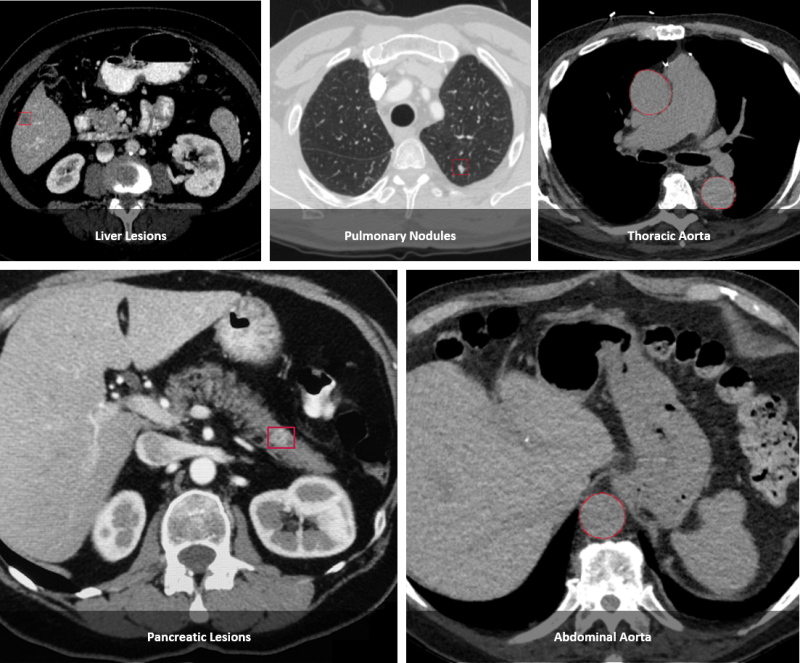
Technology
Deep learning is a subfield of artificial intelligence that has evolved in recent years and made a significant breakthrough in a variety of technological areas, most notably in automatic processing and the analysis of images and text. Deep learning algorithms are the technological foundation of IMedis. The company has developed a unique platform, based on deep learning algorithms, for processing CT scans and medical text from radiological reports.
Using a series of deep learning algorithms of Convolutional Neural Networks (CNN), the system can automatically detect, mark, classify and measure suspected lesions appearing in CT scans, including those smaller than 1 cm, which presents a challenge even for trained and experienced physicians.
In addition, IMedis has developed Recurrent Neural Networks (RNN) deep learning algorithms for text analysis, with which the system is able to identify any clinical findings in the radiological report and classify them as positive references (for example: "a suspicious liver lesion of 8 mm diameter") or negative references (for example: "No suspicious lesions were found in the liver").
To protect the innovation, IMedis has several filed patents, with emphasizes on the unique combination described above.
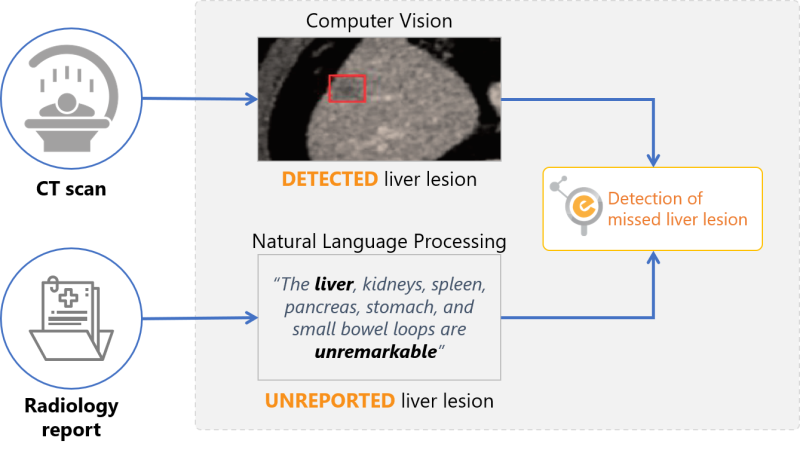

Team
Team
|
Yitzi has extensive experience in medical image processing and computer vision and is an expert in AI and deep learning. Yitzi worked in several medical image companies as an algorithm team leader and developed many state-of-the-art algorithms from concept to commercial stage. Yitzi has vast experience in running clinical and validation trials with leading US medical institutes for the purpose of obtaining clinical proof and regulatory approvals (e.g. FDA). Yitzi holds a BSc in Bio-Medical Engineering and an MSc In Electrical Engineering specializing in Medical Image Processing from Tel-Aviv University.
|
|
Dr. Balcombe is a radiologist specializing in Emergency Imaging, Cardiac Imaging and Body Imaging. Dr. Balcombe received his undergraduate degree from Cambridge University, and his medical degree from University College London Medical School. He completed residency in Diagnostic Radiology in 2008, followed by a fellowship in Cardiovascular Imaging in 2009, both at the Hospital of the University of Pennsylvania. Dr. Balcombe has published papers regarding automated analysis of coronary artery CT angiography, characterization of mediastinal paragangliomas, embolic potential of gonadal vein thromboses, cavitation of lung metastases and more.
|
|
Mr. Assaf Barnea is a seasoned entrepreneur and ventures professional, with extensive, multidisciplinary experience in building innovation platforms in healthcare. Mr. Barnea leads Sanara Ventures, a healthcare innovation fund backed by Phillips and Teva. In addition to leading Sanara, Mr. Barnea chairs the Life Science Advisory Board at The Israel Export Institute, on behalf of the Israeli government. Mr. Barnea is a certified lawyer and holds both law and business degrees from the Interdisciplinary Center in Herzelia, as well as a BA in political science and psychology from Tel-Aviv University.
|
|
Dr. Eran Toledo, CTO at Sanara Ventures is an experienced executive, with a strong background in both academic research and industrial development projects. Prior to joining Sanara Ventures, He was VP of Research and Development with Aspect Imaging. Dr. Toledo is a graduate of the distinguished “Talpiot” program. He holds a BSc in Physics and Mathematics from the Hebrew University and a Ph.D. in Medical Physics from Tel Aviv University. He has over 10 years of managerial experience in the medical device industry and extensive academic research experience.
|
|
Dr. Tanenbaum serves as a VP, Eastern Region and Director of CT, MR & Advanced Imaging RadNet (NASDAQ: RDNT) and he is a former Associate Professor of Radiology, Director of MRI, CT and Outpatient / Advanced Imaging Development, the Icahn School of Medicine at Mount Sinai, New York, NY
|
|
Prof. Berland is a Professor Emeritus, Abdominal Imaging Section, Radiology at University of Alabama. He holds senior positions in the American College of Radiology (ACR), known for his excellent and widely used guidelines on managing incidental findings in CT. Former president of the Society of Computed Body Tomography and Magnetic Resonance.
|
|
Ms. Karni is the CEO of Diagnostic Healthcare Ltd, UK and brings over 20 years of senior managerial experience in the medical imaging industry and vast experience in developing and integrating advanced electronic systems in Radiology.
|
|
Prof. Blachar is the Chairman of the Department of Radiology, Tel Aviv Sourasky Medical Center and he is specializing in abdominal imaging. In addition, he is professor of medical imaging, Sackler Faculty of Medicine, Tel Aviv University.
|








